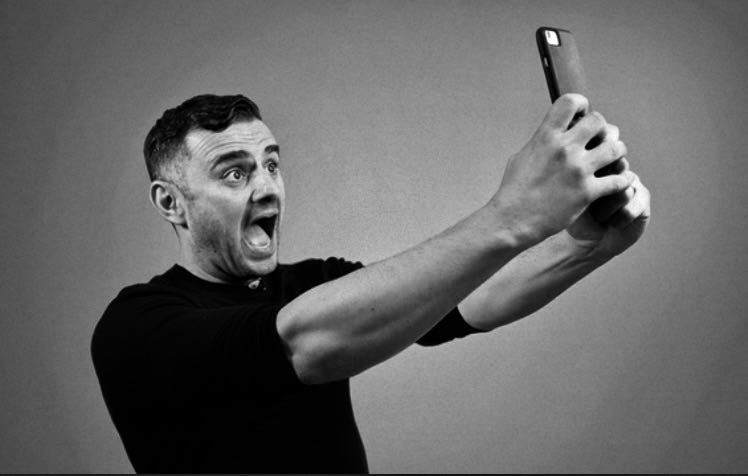Category Superpower: Why Your Greatest Strength Depends On Making A Difference For Others
This is the difference between inward-focused personal development and outward-focused personal category design.
Arrrrr! 🏴☠️ Welcome to a 🔒 subscriber-only edition 🔒 of Category Pirates. Each week, we share radically different ideas to help you design new and different categories. For more: Dive into an audiobook | Listen to a category design jam session | Enroll in the free Strategy Sprint email course
Dear Friend, Subscriber, and Category Pirate,
The personal development market is worth over $40 billion and is growing.
There’s a ton of content out there about how to be a great employee, manager, entrepreneur, partner, and communicator. Books like Damn Good Advice, Think And Grow Rich, and The 7 Habits of Highly Effective People.
Us Pirates have read and researched many of these kinds of books.
In fact, our research showed that the Personal Development category of business books is the largest and most profitable category. Of the 444 top-selling business books since 2004, it makes up 23% of the titles, 25% of Amazon reviews, 28% of unit volume sold, and 31% of revenue.
And because we’re Pirates, we like to look beyond the obvious takeaways. (Arrrrrrr!)
The vast majority of personal development books frame a single problem—you.
The general message is something like, “Hey, you're broken. Aren't you miserable? Your life doesn't work, and you feel like shit sometimes, don't you?”
You’re the problem.
You’re the one that needs fixing.
And you need to do something about it.
“Don’t just sit there. Do something. The answers will follow.”
"Whatever the mind can conceive and believe, it can achieve."
"Realize deeply that the present moment is all you ever have. Make the NOW the primary focus of your life."
It’s all you, you, you. You have to find your passion and do what makes you feel good. But to do that and “fix yourself,” you have to buy this book, join this course, get a personal brand, and attend this webinar.
The problem with the traditional personal development approach (in our Pirate-y opinion) is it doesn't view personal growth from a category design lens.
Instead, there's an overwhelming emphasis on the self.
Me me me me me me me (my personal brand) me me me me me me me (my journey) me me me me (my goals) me me me me me (my money) me me me me me (my fame).
"Me" is even shaping how Generation Z thinks about their careers:
57% of Gen Z said they'd like to become an influencer
53% of Gen Zers believe becoming an influencer is a reputable career choice and a similar amount would quit their current jobs if influencing would pay for their lifestyles
3 out of 10 Gen Zers would actually pay to become an influencer
You've seen this “me” attitude everywhere—books, podcasts, masterminds—all promising the secret formula to a "better" you. But let's pause and think for a moment. What if the core of personal transformation isn't just turning inward to find the greatest potential within yourself, but in turning outward towards others?
This isn't to say that self-improvement isn't valuable.
It is.
But focusing only on your growth is like running a race with blinders on. You might be moving fast, but you're missing the possibilities around you. This can lead to a narrow perspective. And if you’re not careful, you’ll become the self-centered motivational pablum-spewing POS people avoid at parties.
(Watch out for Gary VD—a socially transmitted disease.)
Instead, we want to share a different way to broaden your “personal development” horizons.
A Category Superpower is what you do that makes an exponential difference for others.
We all have one, whether you're a hardened pirate or a shiny new category designer.
Now, this is not your passion. Your passion is about you, but your Category Superpower is about others. The value of your superpower is directly proportional to the value you create. For others. Yes, it’s still your Superpower. But it only works when it makes a difference for others.
For example, Mariah Carey makes between $2-$3 million every Christmas (and $70-something million over time) from her song "All I Want for Christmas Is You." There is only one reason this happens. The song means something to others. How much Mariah thinks it’s awesome is irrelevant. What matters is that millions of people want to hear her song. It’s valuable to them.
As a result of creating that value for others, Ms. Carey is wealthy.
Sure, you can choose not to believe this.
But we choose to believe that every single person is on the planet for a purpose. We think that's very powerful mental scaffolding. And if we can connect our purpose (not passion) with making a difference, ta-da! We have something legendary.
A Category Superpower.
This is the difference between inward-focused personal development and outward-focused personal category design.
Category design shows you how to take your gifts (the things you are uniquely qualified in) and use them to generate massive outcomes for others.
People who know and use their superpowers love life.
They sleep well at night.
Their friends/family look up to them.
They have economic & emotional abundance.
They don’t look for jobs, customers, or investors…
…jobs, customers, or investors look for them!
How do you figure out your unique Category Superpower and create massive value for others?
Start by asking yourself:










